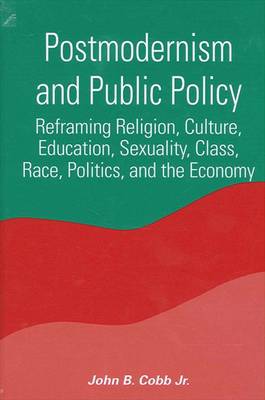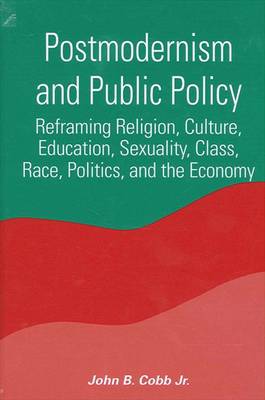
- Afhalen na 1 uur in een winkel met voorraad
- Gratis thuislevering in België vanaf € 30
- Ruim aanbod met 7 miljoen producten
- Afhalen na 1 uur in een winkel met voorraad
- Gratis thuislevering in België vanaf € 30
- Ruim aanbod met 7 miljoen producten
Postmodernism and Public Policy
Reframing Religion, Culture, Education, Sexuality, Class, Race, Politics, and the Economy
John B Cobb JrOmschrijving
Develops a naturalistic postmodern perspective to make constructive proposals about a wide range of topics now in public discussion.
One of America's preeminent systematic theologians, John B. Cobb Jr. examines a range of social issues in his latest groundbreaking work, Postmodernism and Public Policy. Cobb uses a naturalistic postmodern perspective to make constructive proposals about a wide range of topics in the public eye.
Postmodernism and Public Policy shows how a postmodern Christianity can contribute positively to thinking about religious and cultural pluralism, and how this can give direction to the educational enterprise. It proposes ways of understanding sex, gender, and race that take diversity seriously without lapsing into a debilitating relativism that inhibits political action. Arguing for a shift from individualism to thinking of persons-in-community, it proposes that the world be organized from the bottom up in communities of communities, and spells out what this implies for the political and economic orders and the relationship between them. Cobb shows that formulations on all these topics can be coherently interconnected and he develops the implications of such thinking for some specific ethical and political issues that now trouble the United States, such as abortion, physician-assisted suicide, and homosexuality.
Specificaties
Betrokkenen
- Auteur(s):
- Uitgeverij:
Inhoud
- Aantal bladzijden:
- 224
- Taal:
- Engels
- Reeks:
Eigenschappen
- Productcode (EAN):
- 9780791451663
- Verschijningsdatum:
- 15/11/2001
- Uitvoering:
- Paperback
- Formaat:
- Trade paperback (VS)
- Afmetingen:
- 150 mm x 227 mm
- Gewicht:
- 303 g

Alleen bij Standaard Boekhandel
Beoordelingen
We publiceren alleen reviews die voldoen aan de voorwaarden voor reviews. Bekijk onze voorwaarden voor reviews.











